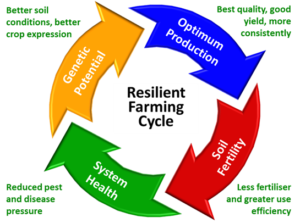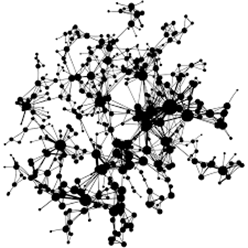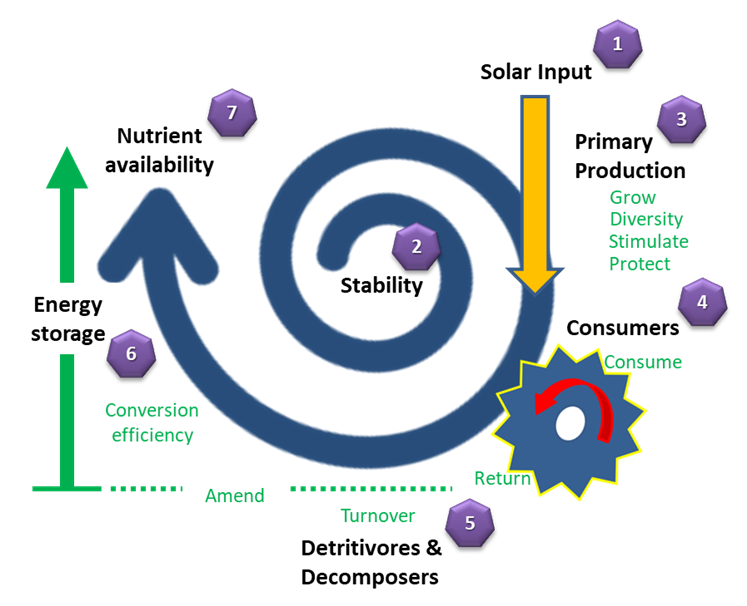- +27 (0)21 848 9434
- marketing@ecosoil.co.za
- Mon - Fri: 8:00 - 16:30
ecodelta programme
The EcoDelta Programme comprises crop specific nutritional amendments that facilitates healthy, resilient, disease resistant, fertile, and profitable productive ecosystems. The aim is to create self-regulating regenerative agricultural ecosystems.
Self-Regulating Regenerative Agriculture
Natural systems, from organism to ecosystem, are highly energy efficient compared to any man-made systems such as engines, solar panels, farms, governments, etc. This begs the question, why is this so, and is there a better way of doing things?
At Ecosoil we believe that there is a better way. For this reason, we would like to invite you to partner with us in creating just such a high energy efficient reality: a reality where much is produced with very little, and where actions are intended to benefit the whole.
Understanding the concepts of entropy and negentropy is vital. Entropy is the measure of a system’s decay into chaos. Negentropy is the reverse of entropy, it denotes increasing system ‘order’. Currently all systems world-wide, also here in South Africa, and in particular ecosystems, are decaying into chaos. This needs to be reversed. We need to facilitate greater order – organisation, structure, and function – the opposite of randomness or chaos.
Natural ecosystems, if left undisturbed, are negentropic. Entropy is overcome and reasonable order is created by biology in ecosystems. It seems as if a system becomes wiser over time, improving in function, even though individuals in the system eventually become entropic and die. Their legacy perpetuates the system, and this is only possible due to their harmonious relationship with the rest of creation.
There is no closed system in nature – everything influences everything else. We know that the building blocks of everything are in essence energy that vibrates. When we apply artificial fertiliser for instance, we introduce a foreign frequency that plants do not recognise. This not only affects the plants negatively but also the whole ecosystem – soil microbiome, mineral balance, ground water, rivers, oceans, animals, people, planet, etc. The ripples vibrate widely.
When we disturb the coherence of a system, energy flow is compromised, and energy utilisation efficiency is far less. The wasted energy must go somewhere and hence, entropy is exported to the environment which simply means that the environment is degraded and will yield less for the next cycle. This is exactly the problem with our linear energy-intensive farming systems and the main reason for diminishing profit margins. Diminishing returns are a strong indication that the system is not functioning as it should be. Soil degradation, global warming, system collapse, disease outbreaks, can all be considered as feedback from nature telling us to wake up before it is too late.
We believe in the intelligence of nature. When operating as designed, nature’s processes work cooperatively, in perfect harmony, to create nutrient rich, productive soils to feed disease-resistant plants that produce the highest quality crops. It is only if we have a holistic view of nature and reality (as best as humanly possible) that we can truly comprehend how to design very profitable farming systems that require little tinkering but self-regulate and perpetuate and contribute to the whole.
how the ecodelta programme works
EcoDelta is a programme for enabling positive change in the agricultural ecosystem. The AIM is to do good by the environment and ecosystems we depend on, whilst utilising it productively.
The programme’s FOCUS is on improving the function of the total system, holistically.

The PURPOSE of the EcoDelta Programme is to build ecosystem resilience and, in the process, reduce the need for external production inputs.
The programme’s business BENEFIT is greater self-reliance and a reduction in risk.
The OUTFLOW is localised expenditure and increased profitability of production.
The Multiplier Effect of Positive Change
Positive change within a system has a multiplier effect. For example, improving water holding capacity by 4% and energy input by 5%, improve ecosystem function by 20% or greater, and not
only 9%.

Positive change affects almost all other components within a system thanks to feedback, and not only a forward component as in the case of a linear production line.
The more beneficial changes made, even when relatively small individually, the greater the multiplier effect realised, the greater the increase in ecosystem function and the total system’s productivity potential.
This is the beauty of ecosystems. They do not need tons of materials or huge inputs. They only need opportunity and time. We can however speed-up the rate of positive change by employing basic practices and providing targeted support.
Basic Practice for Ecosystem Function and Support of System Productivity

- Maximize solar energy input throughout the year with living, photosynthesizing plants.
- Reduce soil disturbance to a minimum. Allow soil to structure, i.e. aggregate, give soil life a home and the opportunity to thrive.
- Capture available solar effectively by growing the greatest diversity of plants possible. Stimulate optimal growth through soil chemical ratio balance, removal of compaction, keeping water near field capacity, and protect soil from wind and direct sunlight.
- Integrate livestock or utilise mechanical means to keep plants vegetative. Return manure/cut biomass to soil. Repeat frequently to speed-up soil energy input. Best – cut, capture, ferment and return organic matter to soil.
- Promote and allow beneficial soil life to decompose and metabolise organic matter. Break the killing cycle, withhold soil applied fungicide, herbicide, and pesticide. An increase in the rate of organic matter turnover increases soil fertility.
- A stable carbon increase only follows after an increase in available carbon. All soil organic matter undergoes progressive decomposition. Increase the soil carbon energy storage pool through diversity of plant inputs, and in microbial communities and meso-life. One organism lives off the waste of another or the other, their combined necromasses form and build energy storage. Amend the soil with balanced organic inputs with a lot of available carbon for improved conversion (carbon use) efficiency.
- Energy storage, the humus in soil, holds much of the nutrients, even more than clay, and has numerous other benefits.
Facilitating a Phase Transition in Ecosystem Function and Productivity
Our long-term goal is to make farmers as self-sufficient as possible, requiring very little off-farm resources whilst improving production and quality. This will be done in a responsible and intelligent manner by first addressing the core causes of imbalance and entropy and then moving on to the next issue that will give the biggest return on investment. The system’s feedback will dictate the rate of change.
Our first order of business is to restore soil function by replacing inorganic fertilisers with suitable organic fertilisers and simultaneously introducing diverse microbial communities. This is the base for continuous soil function improvement. Therefore, we expect the first phase transition to occur within the first 3 years after the implementation of the EcoDelta programme. Expected benefits are higher water holding capacity, less pest and disease pressure, higher yield and/or quality.
The next expected phase transition will happen when soil carbon levels reach 1.7%. The system’s capacity to store energy for future use determines its capacity for resilience. All our fertilisers are carbon based, made from diverse plant, animal, and mineral sources, packaged coherently so that a little will go a long way. Any excess will not cause harm but will contribute to the energy storage capacity of the soil and build resilience. With time this storage capacity will become so large that minimal external input will be necessary.
As the system’s energy efficiency and mineral availability improve with time, we will earn the right to ultimately farm organically.
